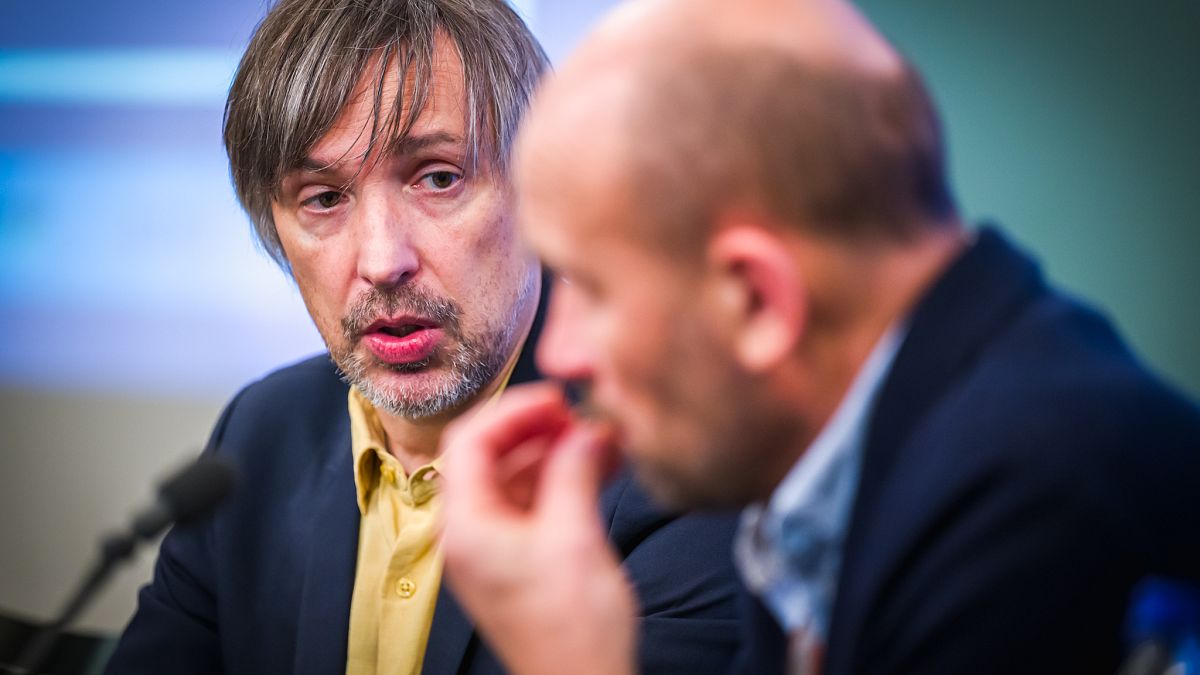As Russia deliberately targets energy infrastructure, war-torn Ukraine is inadvertently showing Europe how it can boost security and resilience, a senior Polish energy official says, as Warsaw prepares to take over the EU Council presidency.
Continuing support for Ukraine, maintaining its energy system and opening talks on its compliance with EU energy law will be EU priorities for the next six months, Poland’s deputy minister for climate and environment said on Wednesday evening.
Warsaw is preparing to take the reins chairing intergovernmental EU negotiations as EU presidency starting next month – and believes the bloc has a lot to learn from its war-torn neighbour.
“There are plenty of lessons that Ukraine is learning the hard way what we actually should consider in Europe, like distributed generation resilience, security of supply [and] security in general,” Krzysztof Bolesta said at a Brussels policy forum.
“I think we will be much richer in knowledge, and transform our energy systems in a better way, when we see what they are doing,” said Bolesta, who is set to play a key role in EU energy policy negotiations when Poland takes over from Hungary as president on 1 January.
At the COP29 climate summit in Azerbaijan last month, Kyiv showcased efforts to build back greener when replacing destroyed energy infrastructure, even as Russia redoubles attacks in a bid to create maximum pressure during the winter.
Bolesta offered Ukraine the prospect during Poland’s presidency of opening the energy chapter of EU accession negotiations, part of a painstaking process of aligning laws and regulations before a new member can join the EU.
Warsaw listed the priorities for its six-month stint in a manifesto published this week, saying that it plans to “promote actions aimed at a full withdrawal from imports of Russian energy sources”, a process at first triggered by Russia’s invasion and the ensuing energy crisis.
For Bolesta, Poland’s policy focus is a “reflection of the mood in Europe” – especially on the EU’s eastern flank where, he said, many fear the arrival of war. He stressed the connections between energy security, food, water and climate with Europe’s broader security.
The deputy minister, previously a senior official in the European Commission’s energy directorate, euphemistically referred to recent “unfortunate accidents” in the Baltic Sea, a likely reference to the sabotage of the Nord Stream gas pipelines between Russian and Germany and several incidents involving damage to underwater communication cables.
“It’s a physical security threat to critical energy infrastructure,” Bolesta said of the shallow seabed criss-crossed by gas and electricity interconnectors – adding that much recent EU legislation has focused on security of supply, which could, ironically, include Russian gas.
Carbon price ‘not enough’
Electricity generation is already becoming decentralised as the use of wind and solar rises, but Bolesta appears sceptical about a key piece of new legislation targeting demand for fossil fuels.
A carbon price set to apply from 2027 won’t be enough to persuade people to buy electric cars or install heat pumps, the Polish energy official said, questioning the logic of a new emissions trading system that will force suppliers to buy permits for pollution.
“I can guarantee you that putting an extra 40 or 50 cents on petrol will not give enough of an incentive for you to change your car,” Bolesta said. “And the fact that you pay a bit more for heating fuel is not going to push you to invest thousands in insulating the house.”
By some measures the EU’s most coal-dependent country, the relatively poor Poland has a lot riding on a new EU Social Climate Fund, financed by the sale of emissions allowances, which governments can use to shield poorer households from higher energy prices through direct subsidy or by promoting home insulation or the switch to heat pumps and electric cars.
Read the full article here


